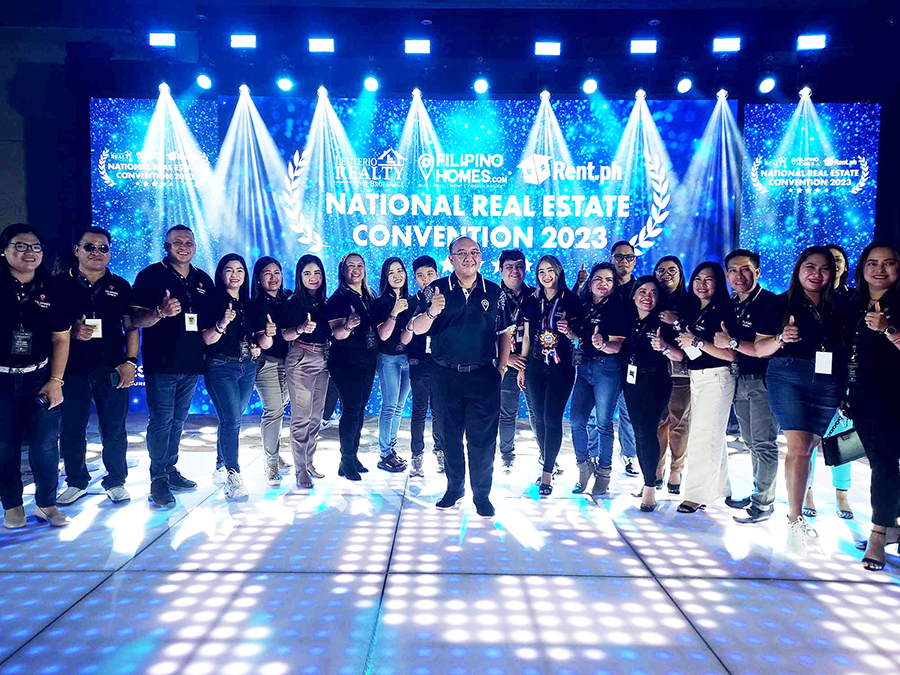CEBU CITY – Ease up real estate regulations.
A leader in the real estate industry made this appeal to the government to help address the country’s housing backlog.

ANTHONY Gerard Leuterio (center), founder and CEO of Filipino Homes, poses with participants of the National Real Estate Convention 2023 on Saturday, October 21, at JPark Island Resorts & Waterpark Mactan-Cebu. (Calvin D. Cordova)
Anthony Gerard Leuterio, founder and chief executive officer of Filipino Homes, said the Philippines is the strictest when it comes to approving housing or subdivision development projects.
“In order to build a house, meaning to create a subdivision, you need more than 172 signatures. Imagine, we are so weird. The Philippines is the most regulated, very, very regulated country,” Leuterio told reporters on the sidelines of the two-day National Real Estate Convention 2023 on Saturday, October 21, at JPark Island Resorts & Waterpark Mactan-Cebu.
Leuterio said it would take up to two years to complete the processing of permits from different agencies and local government units.
“If we want to stimulate the industry, lessen the regulation, lessen the permits so we can help the Philippines,” said Leuterio.
Leuterio added that in other countries, only 10 signatures are required when applying for the approval of a housing project.
“The more signatures, the more corruption,” Leuterio said.
Some 700 brokers and real estate salespersons from all over the Philippines attended the convention.
Described as the “convention of Filipino Homes real estate superstars,” the event awarded the top earners in terms of sales in the real estate sector.
The country’s top developers such as the Cebu Landmasters Inc., Filinvest Land, Apple One, Johndorf, Weecom, BE Residences, IDC, 8890, Grandland, Sterling Land, and Prime World attended the convention.
For 2024 and in the next five years, Leuterio forecast that developers will embark on massive expansion projects after the end of the Covid-19 pandemic.
Real estate projects will also create job opportunities, said Leuterio.
“In every house built, 60 jobs will also be created,” said Leuterio.
The high remittances of Overseas Filipino Workers (OFWs) will also increase the demand for housing and real estate investments.
“But the question is, where will they (OFW) invest if there is no product (housing)?” Leuterio said.
Leuterio added that the backlog of housing units is serious with six million houses needed to be constructed yet the government's core is regulating and not expediting the processes in the creation of more housing projects.
“To the government please, lessen the regulations. Let them build a house. Lessen the number of signatures and I really want the developers and regulators to be at one,” Leuterio said.